- Home
- Wilkie Collins
John Jago's Ghost or the Dead Alive Page 2
John Jago's Ghost or the Dead Alive Read online
Page 2
III THE MOONLIGHT-MEETING
‘I want to speak to you,’ Naomi began. ‘You don’t think ill of me for following you out here? We are not accustomed to stand much on ceremony in America.’
‘You are quite right in America. Pray sit down.’
She seated herself by my side, looking at me frankly and fearlessly by the light of the moon.
‘You are related to the family here,’ she resumed, ‘and I am related too. I guess I may say to you what I couldn’t say to a stranger. I am right glad you have come here, Mr Lefrank; and for a reason, sir, which you don’t suspect.’
‘Thank you for the compliment you pay me, Miss Colebrook, whatever the reason may be.’
She took no notice of my reply: she steadily pursued her own train of thought.
‘I guess you may do some good, sir, in this wretched house,’ the girl went on, with her eyes still earnestly fixed on my face. ‘There is no love, no trust, no peace at Morwick Farm. They want somebody here—except Ambros: don’t think ill of Ambrose; he is only thoughtless—I say, the rest of them want somebody here to make them ashamed of their hard hearts, and their horrid, false, envious ways. You are a gentleman; you know more than they know: they can’t help themselves, they must look up to you. Try, Mr Lefrank, when you have the opportunity—pray try, sir, to make peace among them. You heard
what went on at supper-time; and you were disgusted with it. Oh, yes, you were! I saw you frown to yourself; and I know what that means in you Englishmen.’
There was no choice but to speak one’s mind plainly to Naomi. I acknowledged the impression which had been produced on me at supper-time just as plainly as I have acknowledged it in these pages. Naomi nodded her head in undisguised approval of my candour.
‘That will do; that’s speaking out,’ she said. ‘But—oh, my! you put it a deal too mildly, sir, when you say the men don’t seem to be on friendly terms together here. They hate each other. That’s the word, Mr Lefrank—hate; bitter, bitter, bitter hate!’ She clenched her little fists; she shook them vehemently, by way of adding emphasis to her last words; and then she suddenly remembered Ambrose. ‘Except Ambrose,’ she added, opening her hand again, and laying it very earnestly on my arm. ‘Don’t go and misjudge Ambrose, sir. There is no harm in poor Ambrose.’
The girl’s innocent frankness was really irresistible.
‘Should I be altogether wrong,’ I asked, ‘If I guessed that you were a little partial to Ambrose?’
An Englishwoman would have felt, or would at least have assumed, some little hesitation at replying to my question. Naomi did not hesitate for an instant.
‘You are quite right, sir,’ she said, with the most perfect composure. ‘If things go well, I mean to marry Ambrose.’
‘If things go well,’ I repeated. ‘What does that mean? Money?’
She shook her head.
‘It means a fear that I have in my own mind,’ she answered—‘a fear, Mr Lefrank, of matters taking a bad turn among the men here—the wicked, hard-hearted, unfeeling men.
I don’t mean Ambrose, sir: I mean his brother Silas, and John Jago. Did you notice Silas’s hand? John Jago did that, sir, with a knife.’
‘By accident?’ I asked.
‘On purpose,’ she answered. ‘In return for a blow.’
This plain revelation of the state of things at Morwick Farm rather staggered me. Blows and knives under the rich and respectable roof-tree of old Mr Meadowcroft!—blows and knives, not among the labourers, but among the masters! My first impression was like your first impression, no doubt. I could hardly believe it.
‘Are you sure of what you say?’ I enquired.
‘I have it from Ambrose. Ambrose would never deceive me. Ambrose knows all about it.’
My curiosity was powerfully excited. To what sort of household had I rashly voyaged across the ocean in search of rest and quiet?
‘May I know all about it too?’ I said.
‘Well, I will try and tell you what Ambrose told me. But you must promise me one thing first, sir. Promise you won’t go away and leave us when you know the whole truth.
Shake hands on it, Mr Lefrank; come, shake hands on it.’
There was no resisting her fearless frankness. I shook hands on it. Naomi entered on her narrative the moment I had given her my pledge, without wasting a word by way of preface.
‘When you are shown over the farm here,’ she began, ‘you will see that it is really two farms in one. On this side of it, as we look from under this tree, they raise crops: on the
other side—on much the larger half of the land, mind—they raise cattle. When Mr Meadowcroft got too old and too sick to look after his farm himself, the boys (I mean Ambrose and Silas) divided the work between them. Ambrose looked after the crops, and Silas after the cattle. Things didn’t go well, somehow, under their management. I can’t tell you why. I am only sure Ambrose was not in fault. The old man got more and more dissatisfied, especially about his beasts. His pride is in his beasts. Without saying a word to the boys, he looked about privately (I think he was wrong in that, sir; don’t you?)—he looked about privately for help; and, in an evil hour, he heard of John Jago. Do you like John Jago, Mr Lefrank?’
‘So far, no. I don’t like him.’
‘Just my sentiments, sir. But I don’t know: it’s likely we may be wrong. There’s nothing against John Jago, except that he is so odd in his ways. They do say he wears all that nasty hair on his face (I hate hair on a man’s face) on account of a vow he made when he lost his wife. Don’t you think, Mr Lefrank, a man must be a little mad who shows his grief at losing his wife by vowing that he will never shave himself again? Well, that’s what they do say John Jago vowed. Perhaps it’s a lie. People are such liars here!
Anyway, it’s truth (the boys themselves confess that), when John came to the farm, he came with a first-rate character. The old father here isn’t easy to please; and he pleased the old father. Yes, that’s so. Mr Meadowcroft don’t like my countrymen in general. He’s like his Sons—English, bitter English, to the marrow of his bones. Somehow, in spite of that, John Jago got round him; maybe because John does certainly know his business. Oh, yes! Cattle and crops, John knows his business. Since he’s been overlooker, things have prospered as they didn’t prosper in the time of the boys. Ambrose owned as much to me himself. Still, sir, it’s hard to be set aside for a stranger; isn’t it? John gives the orders now. The boys do the work; but they have no voice in it when John and the old man put their heads together over the business of the farm. I have been long in telling you of it, sir; but now you know how the envy and the hatred grew among the men, before my time. Since I have been here, things seem to get worse and worse. There’s hardly a day goes by that hard words don’t pass between the boys and John, or the boys and their father. The old man has an aggravating way, Mr Lefrank—a nasty way, as we do call it—
of taking John Jago’s part. Do speak to him about it when you get the chance. The main blame of the quarrel between Silas and John the other day lies at his door, I think. I don’t want to excuse Silas, either. It was brutal of him—though he is Ambrose’s brother—to strike John, who is the smaller and weaker man of the two. But it was worse than brutal in John, to out with his knife, and try to stab Silas. Oh, he did it! If Silas had not caught the knife in his hand (his hand’s awfully cut, I can tell you; I dressed it myself), it might have ended, for anything I know, in murder—’
She stopped as the word passed her lips, looked back over her shoulder, and Started violently.
I looked where my companion, was looking. The dark figure of a man was standing, watching us, in the shadow of the elm-tree. I rose directly to approach him. Naomi recovered her self-possession, and checked me before I could interfere.
‘Who are you?’ she asked, turning sharply towards the stranger. ‘What do you want there?’
The man stepped out from the shadow into the moonlight, and stood revealed to us as John Jago.
‘I
hope I am not intruding?’ he said, looking hard at me.
‘What do you want?’ Naomi repeated.
‘I don’t wish to disturb you, or to disturb this gentleman,’ he proceeded. ‘When you are quite at leisure, Miss Naomi, you would be doing me a favour if you would permit me to say a few words to you in private.’
He spoke with the most scrupulous politeness; trying, and trying vainly, to conceal some strong agitation which was in possession of him. His wild brown eyes—wilder than ever in the moonlight—rested entreatingly, with a strange underlying expression of despair, on Naomi’s face. His hands, clasped tightly in front of him, trembled incessantly.
Little as I liked the man, he did really impress me as a pitiable object at that moment.
‘Do you mean that you want to speak to me to-night?’ Naomi asked, in undisguised surprise.
‘Yes, miss, if you please, at you leisure and at Mr Lefrank’s.’
Naomi
hesitated.
‘Won’t it keep till to-morrow?’ she said.
‘I shall be away on farm-business to-morrow, miss, for the whole day. Please to give me a few minutes this evening.’ He advanced a step towards her: his voice faltered, and dropped timidly to a whisper. ‘I really have something to say to you, Miss Naomi. It would be a kindness on your part—a very, very great kindness—if you will let me say it before I rest to-night.’
I rose again to resign my place to him. Once more Naomi checked me. ‘No,’ she said.
‘Don’t stir.’ She addressed John Jago very reluctantly: ‘If you are so much in earnest about it, Mr John, I suppose it must be. I can’t guess what you can possibly have to say to me which cannot be said before a third person. However, it wouldn’t be civil, I suppose, to say “No” in my place. You know it’s my business to wind up the hall-clock at ten every night. If you choose to come and help me, the chances are that we shall have the hall to ourselves. Will that do?’
‘Not in the hall, miss, if you will excuse me.’
‘Not in the hall!’
‘And not in the house either, if I may make so bold.’
‘What do you mean?’ She turned impatiently, and appealed to me. ‘Do you understand him?’
John Jago signed to me imploringly to let him answer for himself. ‘Bear with me, Miss Naomi,’ he said. ‘I think I can make you understand me. There are eyes on the watch, and ears on the watch, in the house; and there are some footsteps—I won’t say whose—so soft, that no person can hear them.’
The last allusion evidently made itself understood. Naomi stopped him before he could say more.
‘Well, where is it to be?’ she asked, resignedly. ‘Will the garden do, Mr John?’
‘Thank you kindly, miss: the garden will do.’ He pointed to a gravel-walk beyond us, bathed in the full flood of the moonlight. ‘There,’ he said, ‘where we can see all round us, and be sure that nobody is listening. At ten o’clock.’ He paused, and addressed himself to me. ‘I beg to apologise, sir, for intruding myself on your conversation. Please to excuse me.’
His eyes rested with a last, anxious, pleading look on Naomi’s face. He bowed to us, and melted away into the shadow of the tree. The distant sound of a door, closed softly, came to us through the stillness of the night. John Jago had re-entered the house.
Now that he was out of hearing, Naomi spoke to me very earnestly:
‘Don’t suppose, sir, I have any secrets with him,’ she said. ‘I know no more than you do what he wants with me. I have half a mind not to keep the appointment. It’s close on ten now. What would you do in my place?’
‘Having made the appointment,’ I answered, ‘it seems to be due to yourself to keep it.
If you feel the slightest alarm, I will wait in another part of the garden, so that I can hear if you call me.’
She received my proposal with a saucy toss of the head, and a smile of pity for my ignorance.
‘You are a stranger, Mr Lefrank, or you would never talk to me in that way. In America, we don’t do the men the honour of letting them alarm us. In America, the women take care of themselves. He has got my promise to meet him, as you say; and I must keep my promise. Only think,’ she added, speaking more to herself than to me, ‘of John Jago finding out Miss Meadowcroft’s nasty, sly, underhand ways in the house! Most men would never have noticed her!’
I was completely taken by surprise. Sad and severe Miss Meadowcroft a listener and a spy! What next at Morwick Farm?
‘Was that hint at the watchful eyes and ears, and the soft footsteps, really an allusion to Mr Meadowcroft’s daughter?’ I asked.
‘Of course it was. Ah! she has imposed on you as she imposes on everybody else. The false wretch! She is secretly at the bottom of half the bad feeling among the men. I am certain of it—she keeps Mr Meadowcroft’s mind bitter towards the boys. Old as she is, Mr Lefrank, and ugly as she is, she wouldn’t object (if she could only make him ask her) to be John Jago’s second wife. No, sir; and she wouldn’t break her heart if the boys were not left a stick or a stone on the farm when the father dies. I have watched her, and I know it. Ah! I could tell you such things. But there’s no time now—there’s ten o’clock striking! we must say goodnight. I am right glad I have spoken to you, sir. I say again, at parting, what I have said already: Use your influence, pray use your influence, to soften them, and to make them ashamed of themselves, in this wicked house. We will have more talk about what you can do, to-morrow, when you are Shown over the farm. Say goodbye now; I must keep my appointment. Look! here is John Jago stealing out again in the shadow of the tree! Good-night, friend Lefrank; and pleasant dreams.’
With one hand she took mine, and pressed it cordially: with the other she pushed me away without ceremony in the direction of the house. A charming girl!—an irresistible girl! I was nearly as bad as the boys. I declare, I almost hated John Jago, too, as we crossed each other in the shadow of the tree.
Arrived at the glass door, I stopped, and looked back at the gravel-walk.
They had met. I saw the two shadowy figures slowly pacing backwards and forwards in the moonlight, the woman a little in advance of the man. What was he saying to her?
Why was he so anxious that not a word of it should be heard? Our presentiments are sometimes, in certain rare cases, the faithful prophecy of the future. A vague distrust of that moonlight-meeting stealthily took a hold on my mind. ‘Will mischief come of it?’ I asked myself, as I closed the door and entered the house.
Mischief did come of it. You shall hear how.
IV THE BEECHEN STICK
Persons of sensitive nervous temperament, sleeping for the first time in a strange house, and in a bed that is new to them, must make up their minds to pass a wakeful night. My first, night at Morwick Farm was no exception to this rule. The little sleep I had was broken and disturbed by dreams. Towards six o’clock in the morning my bed became unendurable to me. The sun was shining in brightly at the window. I determined to try the reviving influence of a stroll in the fresh morning air.
Just as I got out of bed, I heard footsteps and voices under my window.
The footsteps stopped, and the voices became recognisable. I had passed the night with my window open: I was able, without exciting notice from below, to look out.
The persons beneath me were Silas Meadowcroft, John Jago, and three strangers, whose dress and appearance indicated plainly enough that they were labourers on the farm. Silas was swinging a stout beechen stick in his hand, and was speaking to Jago, coarsely and insolently enough, of his moonlight-meeting with Naomi on the previous night.
‘Next time you go courting a young lady in secret,’ said Silas, ‘make sure that the moon goes down first, or wait for a cloudy sky. You were seen in the garden, Master Jago; and you may as well tell us the truth for once in a way. Did you find her open to persuasion, sir? Did she say “Yes?”’
John Jago kept his temper.
‘If you must have your joke, Mr Silas,’ he said, quietly and firmly, �
��be pleased to joke on some other subject. You are quite wrong, sir, in what you suppose to have passed between the young lady and me.’
Silas turned about, and addressed himself ironically to the three labourers.
‘You hear him, boys? He can’t tell the truth, try him as you may. He wasn’t making love to Naomi in the garden last night—oh, dear, no! He has had one wife already; and he knows better than to take the yoke on his shoulders for the second time!’
Greatly to my surprise, John Jago met this clumsy jesting with a formal and serious reply.
‘You are quite right, sir,’ he said. ‘I have no intention of marrying for the second time.
What I was saying to Miss Naomi doesn’t matter to you. It was not at all what you choose to suppose; it was something of quite another kind, with which you have no concern. Be pleased to understand once for all, Mr Silas, that not so much as the thought of making love to the young lady has ever entered my head. I respect her; I admire her good qualities: but if she was the only woman left in the world, and if I was a much younger man than I am, I should never think of asking her to be my wife.’ He burst out suddenly into a harsh, uneasy laugh. ‘No, no! not my style, Mr Silas—not my style!’
Something in those words, or in his manner of speaking them, appeared to exasperate Silas. He dropped his clumsy irony, and addressed himself directly to John Jago in a tone of savage contempt.
‘Not your style?’ he repeated. ‘Upon my soul, that’s a cool way of putting it, for a man in your place! What do you mean by calling her “not your style”? You impudent beggar!
Naomi Colebrook is meat for your master!’
John Jago’s temper began to give way at last. He approached defiantly a step or two nearer to Silas Meadowcroft.
‘Who is my master?’ he asked.

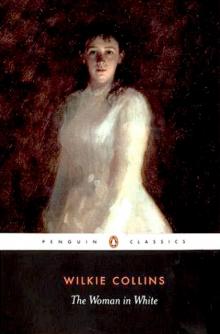 The Woman in White
The Woman in White The Queen of Hearts
The Queen of Hearts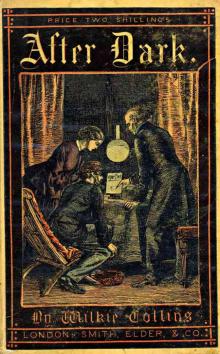 Miss Jeromette and the Clergyman
Miss Jeromette and the Clergyman Man and Wife
Man and Wife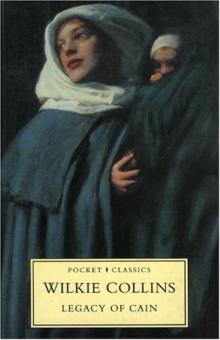 The Legacy of Cain
The Legacy of Cain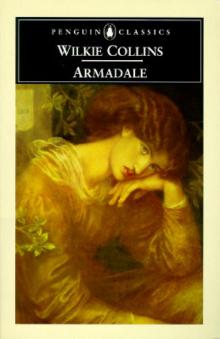 Armadale
Armadale The Frozen Deep
The Frozen Deep John Jago's Ghost or the Dead Alive
John Jago's Ghost or the Dead Alive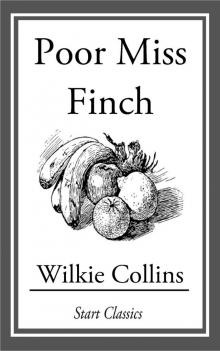 Poor Miss Finch
Poor Miss Finch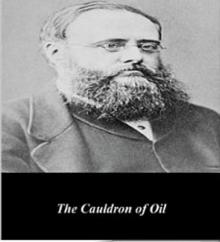 The Cauldron of Oil: A Case Worth Looking At
The Cauldron of Oil: A Case Worth Looking At The Poisoned Meal
The Poisoned Meal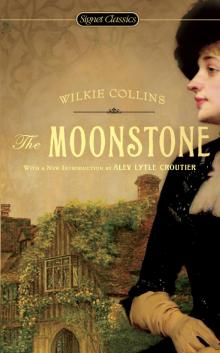 The Moonstone
The Moonstone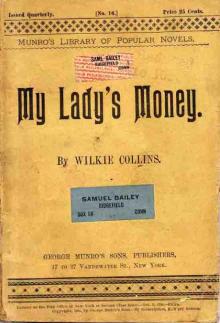 My Lady's Money
My Lady's Money Classic Ghost Stories
Classic Ghost Stories Jezebel's Daughter
Jezebel's Daughter The Devil's Spectacles
The Devil's Spectacles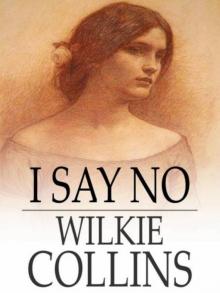 I Say No
I Say No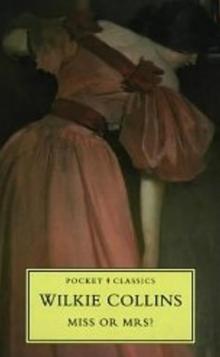 Miss or Mrs.?
Miss or Mrs.?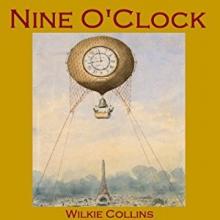 Nine O'Clock
Nine O'Clock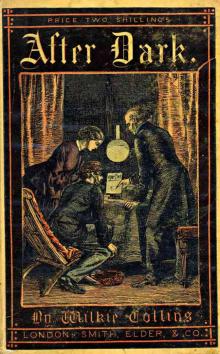 The Lawyer's Story of a Stolen Letter
The Lawyer's Story of a Stolen Letter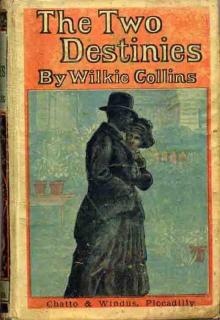 The Two Destinies
The Two Destinies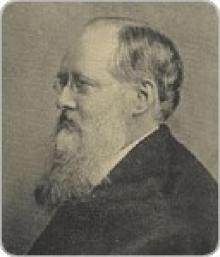 Mr. Percy and the Prophet
Mr. Percy and the Prophet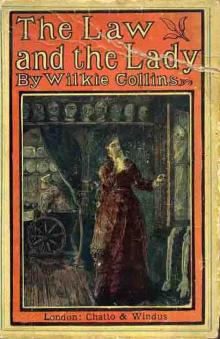 The Law and the Lady
The Law and the Lady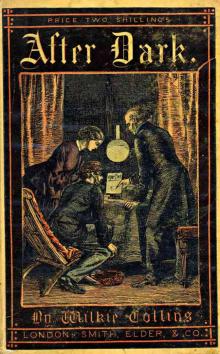 The Nun's Story of Gabriel's Marriage
The Nun's Story of Gabriel's Marriage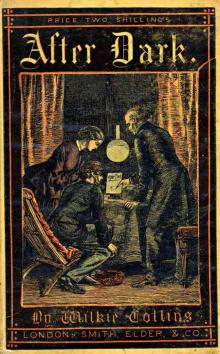 After Dark
After Dark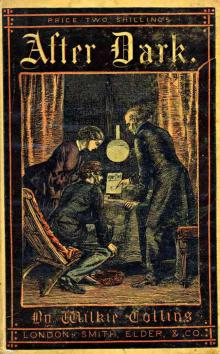 Mr. Captain and the Nymph
Mr. Captain and the Nymph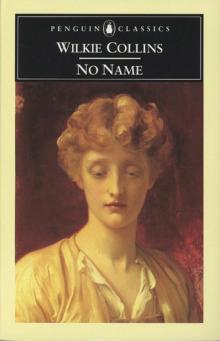 No Name
No Name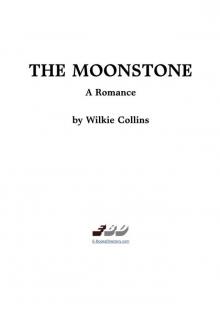 The Moonstone (Penguin Classics)
The Moonstone (Penguin Classics) Antonina
Antonina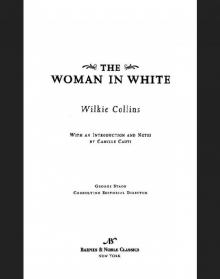 Woman in White (Barnes & Noble Classics Series)
Woman in White (Barnes & Noble Classics Series)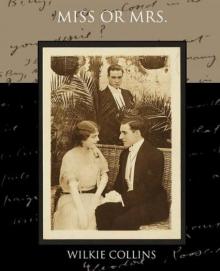 Miss or Mrs
Miss or Mrs The Dead Alive
The Dead Alive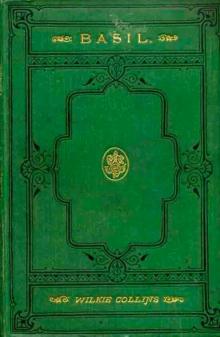 Basil
Basil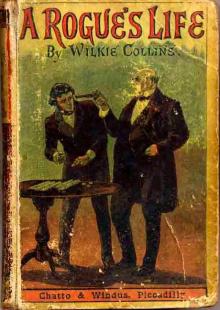 A Rogue's Life
A Rogue's Life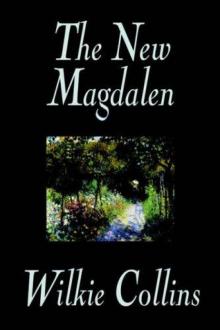 The New Magdalen
The New Magdalen Blind Love
Blind Love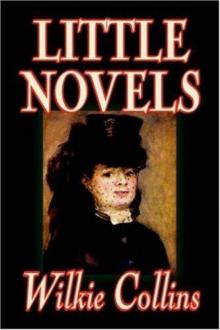 Little Novels
Little Novels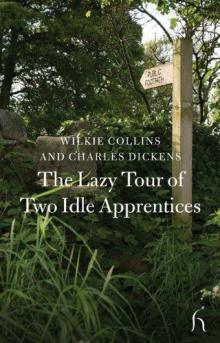 The Lazy Tour of Two Idle Apprentices
The Lazy Tour of Two Idle Apprentices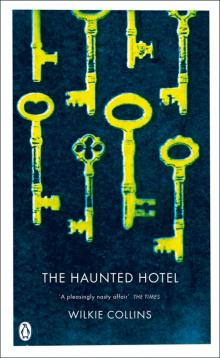 The Haunted Hotel
The Haunted Hotel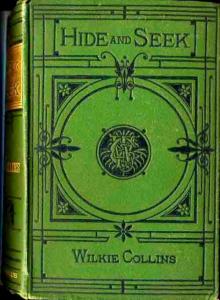 Hide and Seek
Hide and Seek